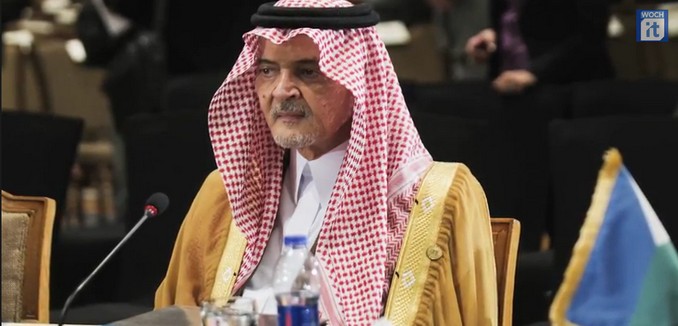Recent commentary in Gulf-based Arab media expresses concern that the nuclear negotiations between the West and Iran will weaken the standing of the Arab states. The Middle East Media Research Institute (MEMRI) published a sampling of reaction across the region on Sunday.
MEMRI summarized some of the themes it detected in the commentary.
Articles published in the Saudi press ahead of this date expressed apprehension regarding a possible agreement, on the grounds that it would increase Iran’s influence at the expense of the Arab states. Many of the articles warned that the U.S. might make far-reaching concessions to Iran regarding its nuclear program, or, alternatively, would reward it for making concessions in this domain by giving it a free hand in the region, to the Arabs’ detriment. Other articles directed harsh criticism at Obama for preferring to cooperate with Iran and abandon his Arab allies, and called on the Arabs to perform a strategic reassessment and seek other partners instead of the U.S. Some writers also noted that Iranian progress towards the bomb could set off a nuclear arms race in the region by compelling Arab countries to arm themselves with such weapons as well.
Articles on this topic in the Qatari press were fewer, but made similar arguments. The London-based Qatari daily Al-Quds Al-Arabi editorialized that, whatever happens, Iran will come out the winner – since an agreement would mean recognition of Iran as a legitimate nuclear power, and even if no agreement is signed, the negotiations themselves have placed Iran on a par with the world’s leading superpowers. The editorial stated further that the Arabs will find themselves surrounded by nuclear powers, forcing them to reassess their strategies. Liberal Qatari journalist ‘Abd Al-Hamid Al-Ansari assessed that Iran will not make real concessions in its nuclear program, adding that whoever thinks this program is peaceful is naïve. He also mentioned that Iran has managed to convince the U.S. that an Iranian fatwa banning nuclear weapons exists, though this fatwa is in fact entirely fictional.
One of the columns cited by MEMRI was written by Abdulrahman al-Rashed, the general editor of Al Arabiya News Channel and a prominent commentator on Arab affairs. Al-Rashed’s column appeared two weeks ago during the nuclear talks in Oman and covered many of the misgivings shared across the region.
If negotiators in Muscat allow Iran to pursue its nuclear program, we will enter a very dangerous phase. The balance of regional power will be disrupted and this will force regional countries – mainly Saudi Arabia, Turkey and Egypt – to look for means to build a deterrent nuclear power. This will make the Middle East region, which threatens the world with al-Qaeda and ISIS, more dangerous due to the presence of five nuclear countries including Iran and Israel. Why is Obama so concerned with sealing a deal with Iran? There’s no logical reason. We saw how American sanctions succeeded in exhausting the Iranian regime and led it to the point of Tehran thinking that its nuclear program may led to the collapse of the regime. However, the porthole which Obama’s administration opened for the regime in Tehran pushed the Americans, and not the Iranians, to present more concessions in exchange of promises from Khamenei’s regime. These promises are not based on halting the nuclear program but only slow down its implementation. … Any agreement that tames the hostile Iranian political mentality and disarms its nuclear weapons serves the interest of the entire region. However, we do not think that the suggested agreement curbs these nuclear aspirations and it does not deter the chaotic mentality which Tehran has practiced non-stop since the 1980’s. What gives doubts is that the Americans have distanced regional countries from the negotiations with Iran and have exchanged secret messages. … At the same time, we also see how Washington adopts stances that are biased toward Iran in Syria and Iraq!
These concerns were identified by Jonathan Spyer in Confidence Game: Losing American Support the Gulf States Scramble, published nearly a year ago in the January 2014 issue of The Tower Magazine.
Instead, those who have the most to lose are the oil-rich states of the Persian Gulf, especially Saudi Arabia. Control of the Gulf, which is vital to global energy supplies and thus the global economy as a whole, has been the linchpin of American policy in the Middle East for the last half-century. A strong alliance with the Arab monarchies that dominate the Gulf, fueled by credibility of American power, has been at the core of this policy, and this—American military credibility and steadfastness to longstanding foreign policy partnerships—is what appears to be eroding, and causing nothing short of alarm among Gulf leaders.
[Photo: WochitGeneralNews / YouTube ]




